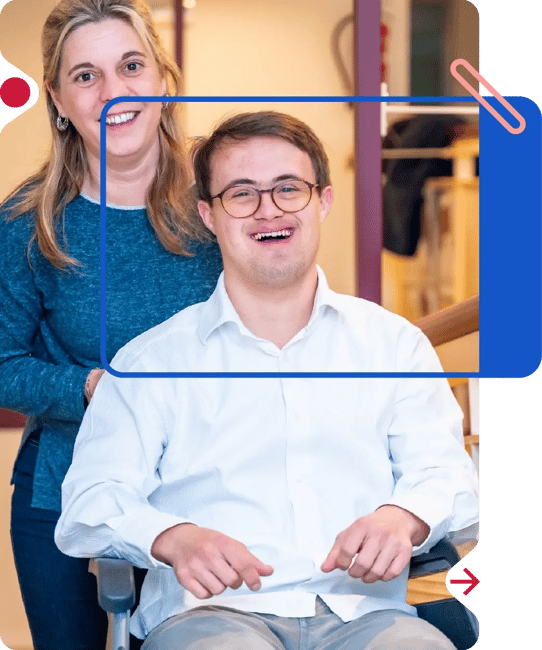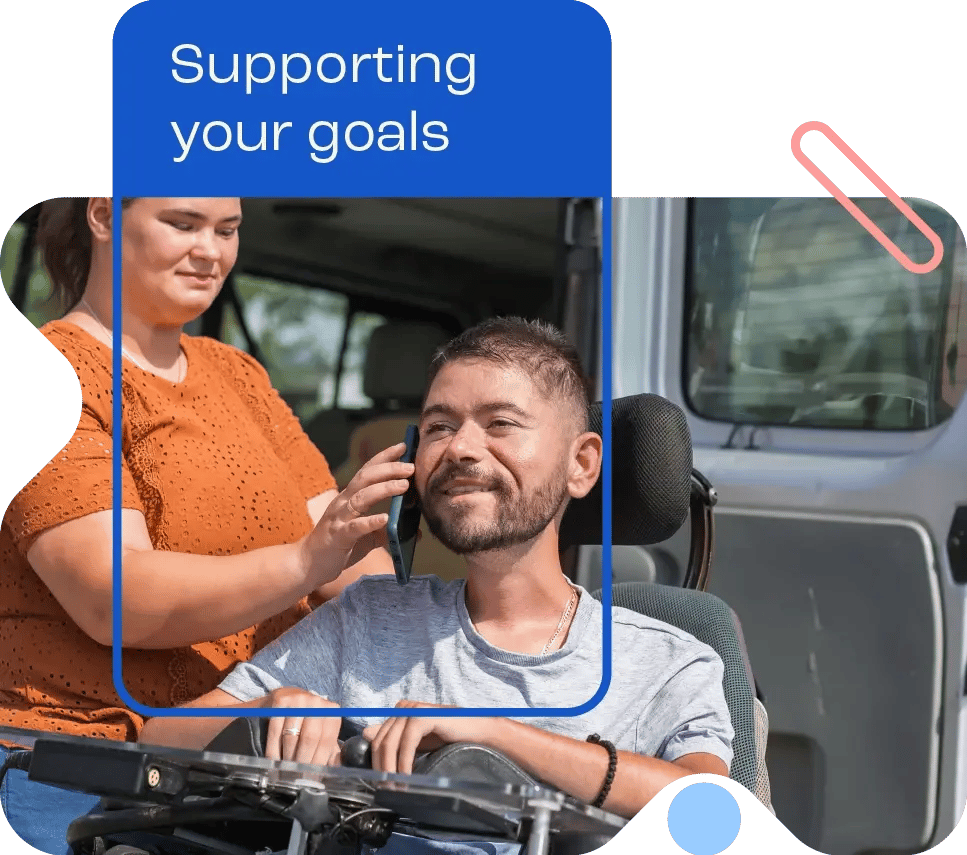

How NDIS works
Discover how to navigate NDIS and build a plan that's right for you
Learn about NDIS
What you need to know about NDIS Care
- What is the National Disability Insurance Scheme?
- Who is eligible?
- What support can I get with NDIS funding?
First things first
What, who, why
With the NDIS, you can choose your own supports and services, helping you stay in control of your care. This support is designed to give you more independence, help you connect with your community, further your learning and work goals, and enhance your wellbeing.
Getting started
You are eligible for NDIS support if:
-
You live in Australia and have Australian residency
-
You have a permanent and significant disability
-
You are aged between seven and 65 years of age
-
You use special equipment because of a permanent and significant disability
-
You require support to better daily activities
Available care
If you are eligible, you will be invited by the NDIS to develop a personalised plan.
During the meeting, you will set your goals and what you want to achieve, and discuss the support and services available you.
Next, your individual NDIS plan will be created, along with the funding you will receive to make those goals a reality.
How it works

Step 1. Referral
You, your family or your local support coordinator connects with Accept
Step 2. First call
A Support Partner gets in touch to learn more about you and your goals
Step 3. Home visit
We visit you in your home to develop a support plan that’s right for you
Step 4. Get started
You meet your support worker team, and we get services started
Step 5. Ongoing support
You have direct phone access to your Support Partner & we stay in touch
FAQ
Your top NDIS questions answered!
What does the NDIS cover?
The NDIS funds “reasonable and necessary” supports that assist daily living, such as personal care, assistive technology, therapies, and community participation. It doesn’t cover day-to-day costs like rent or groceries. Support is tailored to individual needs.
How do I apply for the NDIS?
To apply, you must complete an Access Request Form and provide medical or other evidence about your disability. You can apply by calling NDIS 1800 800 110 or visiting the NDIS website. Gathering detailed information, including health records, and needs helps ensure the application process goes smoothly.
Who can access the NDIS?
The NDIS is for Australians under 65 with a permanent and significant disability affecting their ability to perform daily tasks. Your eligibility will be assessed based on your individual circumstances and how it impacts your functional capacity. The program aims to help individuals gain independence and participate more fully in life and the community.
What do NDIS services costs?
The NDIS Pricing Arrangements and Price Limits outlines how support providers charge for services delivered to NDIS participants. The National Disability Insurance Agency (NDIA) regulates pricing to ensure supports remain affordable, fair, and sustainable while providing value for money for participants and fostering growth in the provider market. See government pricing here.
What if I have problems with my NDIS plan?
If you’re unhappy with your plan or funding, you can request a review. If issues remain unresolved, the Administrative Review Tribunal can help. Advocacy services, like PWD Australia, can also support you in navigating these challenges.
What do NDIS workers do?
NDIS support workers play a crucial role in empowering individuals with disabilities to live their best lives and reach their full potential. The responsibilities of an NDIS support worker require a range of skills, including excellent communication, patience, empathy, and a strong commitment to making a positive difference in the lives of those they support.
The key responsibilities of an NDIS Support Worker include:
- Providing practical and emotional support to individuals with disabilities
- Assisting with daily activities such as personal care, meal preparation, and mobility
- Facilitating access to the community and promoting social inclusion
- Working with individuals to understand their needs and develop customized support plans
- Implementing support plans and monitoring progress towards achieving goals and aspirations
- Providing respite care for families and carers
- Collaborating with other support workers, healthcare professionals, and service providers
- Providing transport and accompaniment to appointments and activities
- Keeping accurate records and updating support plans as needed
- Encouraging individuals to take an active role in their support and promoting independence
- Ensuring participants are safe, and reporting any incidents that may occur.

With your individualised NDIS plan in place, you'll begin working with service providers of your choosing to reach your goals.
Take some time to consider which provider is the best fit for your support needs. If you’re unsure where to start, the NDIA can give you a list of registered service providers in your area.
Service providers are professionals who deliver support and services ranging from physiotherapy to counselling to transport services.

Management options
How do I manage and review my NDIS Plan?
There are 3 ways to manage your plan:
- Self-managed – you manage your plan by yourself
- NDIA-managed – the NDIA manages your plan for you
- Plan-managed – a Plan Manager helps you manage part of your plan.
Each year, the NDIA will review your NDIS Plan to make sure it’s meeting your needs. Before your review, take some time to consider what you’ve achieved and what you’d like to work towards next.
